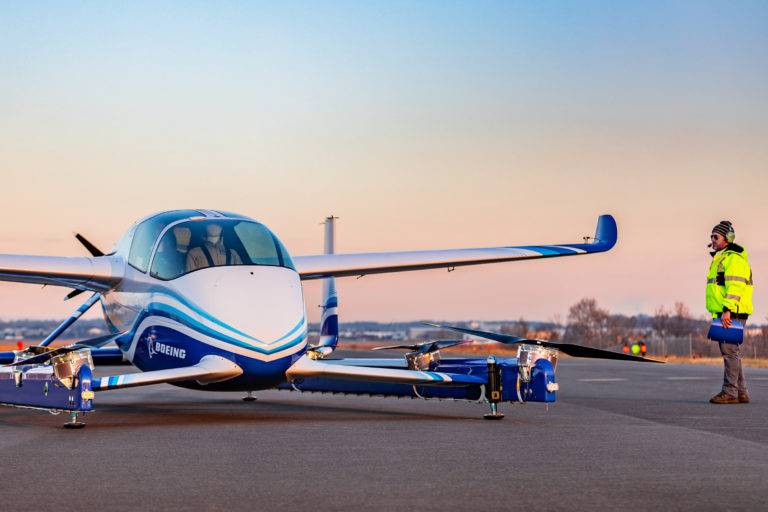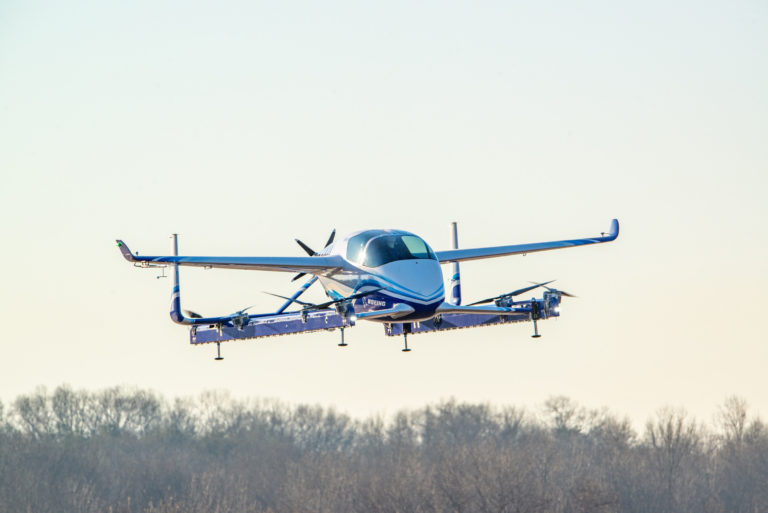On Tuesday 22 January, Boeing successfully completed the first test flight of its autonomous passenger air vehicle (PAV) prototype in Virginia, USA.
The small ‘plane’ has been likened to flying cars and air taxis, but technically it’s an electric vertical takeoff and landing (eVTOL) aircraft. As technology and the autonomous vehicle industry expands and evolves, what was once a futuristic dream and the stuff of science fiction films is fast becoming a reality.

While it’s not the first company to bring out a flying car (Airbus and AeroMobil got there first), Boeing believes it’s advancing the safety and reliability of on-demand autonomous air transportation, and has enlisted its urban air mobility division Boeing NeXt and subsidiary body Aurora Flight Sciences to develop its latest offering.
‘This is what revolution looks like, and it’s because of autonomy,’ said John Langford, president and chief executive officer of Aurora Flight Sciences. ‘Certifiable autonomy is going to make quiet, clean and safe urban air mobility possible.’

Boeing tested the prototype’s autonomous functions and ground control systems in Manassas, Virginia where Aurora Flight Sciences is based, with successful results: the craft completed a controlled takeoff, hovering and a controlled landing. The aircraft manufacturing company will test other flight motion and flight modes next, and the transition phase between vertical and forward flight modes is expected to be the most challenging engineering component in the upcoming trials.
From takeoff to landing, the craft is designed for fully-autonomous flight, and is powered by an electric propulsion system. At present, it’s expected to operate with a range of about 80 kilometres. Boeing says that the advanced airframe ‘integrates the propulsion and wing systems to achieve efficient hover and forward flight’ motion, and it is about 9-metres long and 8.5-metres wide.
‘In one year, we have progressed from a conceptual design to a flying prototype,’ said Greg Hyslop, Boeing’s Chief Technology Officer. ‘Boeing’s expertise and innovation have been critical in developing aviation as the world’s safest and most efficient form of transportation, and we will continue to lead with a safe, innovative and responsible approach to new mobility solutions.’
Images supplied by Boeing
You may also like
Related Posts
China’s National Health Commission has published a list of controversial coronavirus treatments that have animal...
read more
Warmer sea temperatures in the summer months, especially in February, were recorded and are believed...
read more
The latest report indexing the world's happiest countries has highlighted the important role of...
read more